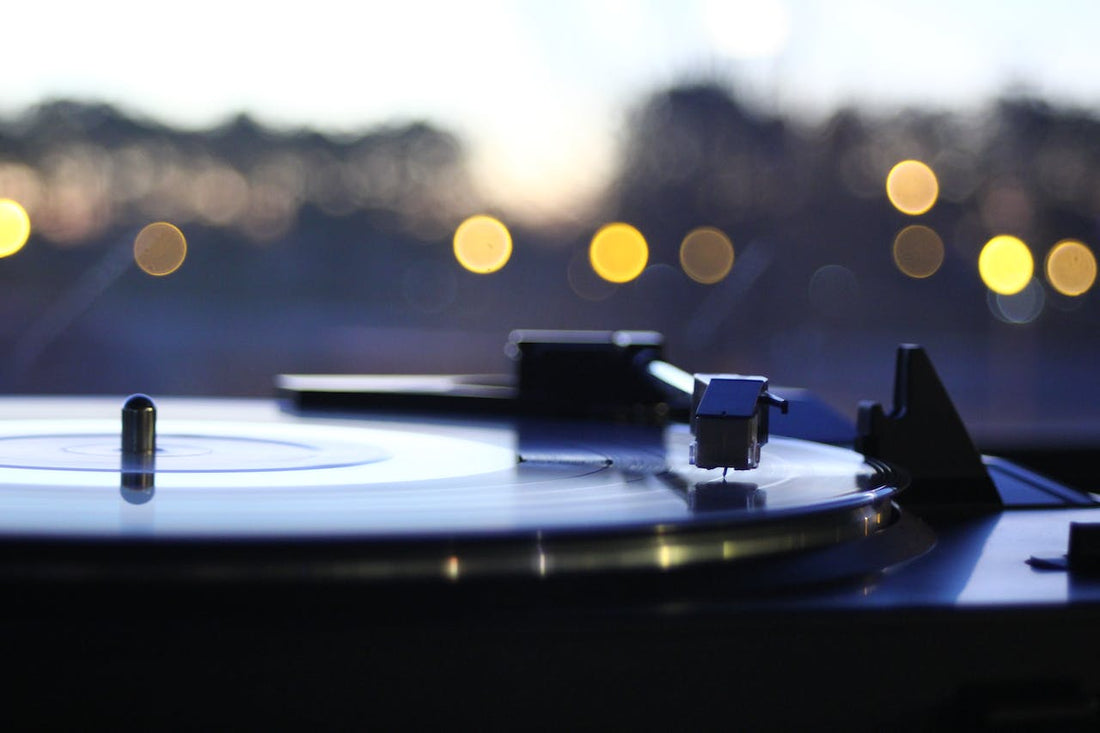
The Enduring Allure of Vinyl Records: A Journey Through Music and Memories
Share
Vinyl records, a symbol of music's golden era, have experienced a remarkable resurgence in recent years. This blog post delves into the rich culture of collecting vinyl records, exploring the reasons behind its persistent charm and how it continues to captivate music enthusiasts worldwide.
The Vinyl Revival
Vinyl Record Sales Statistics:
- Global Sales: Vinyl records have seen a steady increase in global sales over the past decade.
- Demographics: A diverse age group, from millennials to baby boomers, are investing in vinyl.
- Popular Genres: Classic rock, jazz, and indie music lead in vinyl sales.
The Art of Collecting
Collecting vinyl records is more than just amassing music; it's about preserving a piece of history. Enthusiasts often cite the following aspects:
- Sound Quality: Many argue that vinyl offers a warmer, richer sound compared to digital formats.
- Artwork and Packaging: The tangible aspect of vinyl records, with their large, artistic covers, adds a visual element to the music experience.
- Nostalgia and Connection: For many, vinyl records evoke memories and a deeper connection to the music and artists.
- Collectability: Limited edition releases, colored vinyl, and rare pressings are highly sought after.
Pros and Cons of Vinyl Collecting
Pros:
- Enhances music listening experience.
- Physical connection to music and artists.
- Potential increase in value over time.
Cons:
- Requires more space for storage.
- More expensive than digital formats.
- Fragility and need for maintenance.
-
Frequently Asked Questions
-
Why are vinyl records making a comeback? Vinyl offers a unique listening experience, combining rich sound with tangible artwork.
-
What is the best way to store vinyl records? Store them vertically in a cool, dry place away from direct sunlight.
-
Can vinyl records be worth a lot of money? Yes, especially rare or limited editions.
-
Is the sound quality of vinyl better than digital? Many argue it's warmer and richer, but it's subjective.
-
What do I need to start a vinyl collection? A turntable and a passion for music are the basics.
-
Are new albums released on vinyl? Yes, many artists release their albums on vinyl alongside digital formats.
-
How do I clean vinyl records? Use a soft, anti-static brush and, if needed, a cleaning solution made for vinyl.
-
Why do people collect vinyl records? For the love of music, nostalgia, and the joy of collecting.
-
Where can I buy vinyl records? Record stores, online marketplaces, and directly from artists or labels.
-
Can vinyl records degrade over time? Yes, if not properly stored and handled.
Conclusion
The culture of collecting vinyl records embodies a profound appreciation for music. It's a blend of auditory and tactile experiences, nostalgia, and a celebration of artistry. As vinyl continues to captivate hearts and ears, its legacy as a beloved musical medium is assured.
-

Now that we've explored the core aspects of vinyl record collecting, let's dive deeper into each section, providing more detailed explanations and insights.
Expanded Vinyl Revival
In-Depth Look at Sales Trends:
- Decade Comparison: Analyzing sales data from the past decade, vinyl records have seen a resurgence, outperforming CDs in certain years.
- Digital vs. Physical: Despite the convenience of digital, vinyl offers a tangible experience that resonates with many.
- Regional Variations: Trends in vinyl sales vary globally, with some regions showing higher interest in specific genres or artists.
Deeper into the Art of Collecting
Beyond Just Collecting:
- Historical Significance: Each record holds a piece of musical history, representing different eras and movements.
- Community and Culture: Vinyl collecting fosters a community of enthusiasts who share knowledge, trade records, and discuss music.
- Preservation Efforts: How collectors play a role in preserving rare and old recordings.
Pros and Cons Expanded
Additional Considerations:
- Environmental Impact: The production and disposal of vinyl records and their impact on the environment.
- Technical Requirements: The need for a good turntable, speakers, and maintenance equipment.
- Market Fluctuations: The unpredictability of the collectibles market affecting the value of rare vinyl records.
Web Ratings Extended Analysis
- User Reviews: Collecting insights from various online platforms to provide a comprehensive view of the vinyl collecting experience.
- Expert Opinions: Including quotes and opinions from music historians, audiophiles, and industry professionals.
Expanded FAQs
-
How do I determine the value of a vinyl record? Research its rarity, demand, and condition.
-
Can old vinyl records be restored? Yes, but it depends on the extent of the damage.
-
What's the difference between mono and stereo records? Mono records have a single audio channel, while stereo records have two distinct channels.
-
Do colored vinyl records sound different? The sound quality is generally the same, but some collectors claim subtle differences.
-
How has vinyl influenced modern music culture? Vinyl has inspired a return to analog sound and a focus on album artwork in the digital age.
-
Is vinyl collecting an expensive hobby? It can be, depending on the rarity and condition of the records you're collecting.
-
What's the best way to transport vinyl records? Use sturdy, padded containers and keep them vertical.
-
Can I play a 78 RPM record on a modern turntable? You'll need a turntable with a 78 RPM speed setting and a suitable stylus.
-
How do I organize my vinyl collection? By artist, genre, release date, or personal preference.
-
What are some must-have albums for new collectors? Classics from various genres like rock, jazz, and soul are great starting points.
With these expanded sections, the blog post now offers a comprehensive guide to the world of vinyl record collecting, appealing to both new enthusiasts and seasoned collectors alike.